The Royal Ghana Gold Refinery Ltd is located at RGG House, Kinbu Road, in Accra, Ghana. It was inaugurated in August 2024 and became fully operational in early 2026. The refinery represents a landmark shift toward domestic value addition in African mining by allowing Ghana to refine its own gold to LBMA standards rather than exporting raw dore. This “resource nationalism” model directly mirrors the strategic objectives of the Tulu Kapi Gold Project in Ethiopia, which officially broke ground on February 18, 2026. Just as the Royal Ghana refinery was established through a public-private partnership (the Bank of Ghana and Rosy Royal Minerals) to bolster the national currency and retain profits locally, Tulu Kapi is being developed as a high-grade “Ethiopianized” project with significant state equity (approximately 15–20%) and backing from African development banks (AFC and TDB).
As both nations move toward 2027, the target for Tulu Kapi’s first production, they are setting a regional precedent for moving beyond simple extraction toward a fully integrated, state-backed mineral value chain.
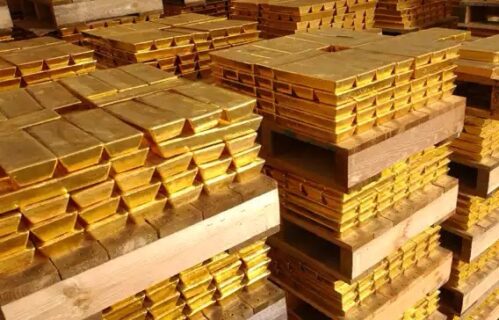
Updated October 18, 2025
The Royal Ghana Gold Refinery, a joint venture between the Bank of Ghana and Rosy Royal Minerals of India, was officially inaugurated in August 2024 with the aim of revolutionizing the nation’s gold mining industry by adding local value to its resources. The facility is located in Accra and has a daily capacity to process about 400 kilograms of gold dore which is primarily sourced from artisanal and small-scale miners. The government views the refinery as a significant step toward retaining the economic value of its gold within the country, creating jobs, reducing gold smuggling, and strengthening the local currency by boosting foreign exchange reserves.
A key near-term goal is for the refinery to achieve certification from the London Bullion Market Association (LBMA), which is crucial for international recognition and market access. However, the project’s launch has been met with controversy, including public skepticism from some policy think tanks regarding its branding as Ghana’s “first” commercial refinery, its actual cost, and concerns about the financial stability and expertise of its majority-stake private partner.
In another project that seeks to bring significant contribution to Ghana’s economy, the country will launch the Gomoa Central Special Economic Zone (GCSEZ). This special economic zone will contribute to the economy by creation of jobs and fees from leases by the government in the area.
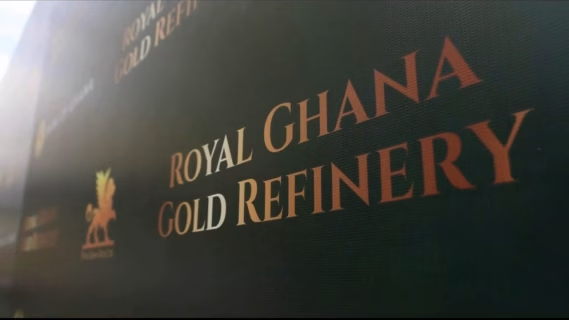
Reported on August 16, 2024
Ghana on Thursday opened a brand new gold refinery, The Royal Ghana Gold Refinery, the first of its kind in West Africa, to add more value from the natural resource and also generate revenue that was constructed at a cost of $100 million.
The Royal Ghana Gold Refinery is set to become only the second in Africa to achieve the prestigious London Bullion Market Association (LBMA) Good Delivery Bar Certification.
This state-of-the-art refinery, is located in Accra, was commissioned on Thursday by Vice President Mahamudu Bawumia, who hailed it as a “historic achievement towards economic transformation and industrialisation of Ghana.”
Capacity of the Royal Ghana Gold Refinery
The gold refinery, which was established by a partnership of the Bank of Ghana and Rosy Royal Minerals Limited, has the capacity to refine up to 400 kilogrammes of gold per day.
This amounts to a yearly capacity of 120 tons, sufficient to process all of Ghana’s gold production, which averages around four million ounces per year.
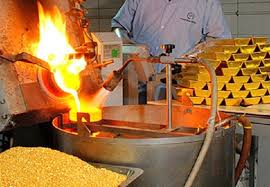
As for now, Ghana’s gold is exported while in its unprocessed form, meaning the country misses out on significant revenue that could be retained through local refining.
Significance of the Project to the Economy of Ghana
“Having the ability to refine our own gold, we will be able to sell it at the appropriate price, enabling us to retain its economic value within our borders while creating numerous jobs for the youth in Ghana,” Ghanaian Vice President Mahamudu Bawumia said at the refinery’s launch, marking “a new era” poised to contain gold smuggling activities that are usually conducted and enhance Ghana’s gold revenues.
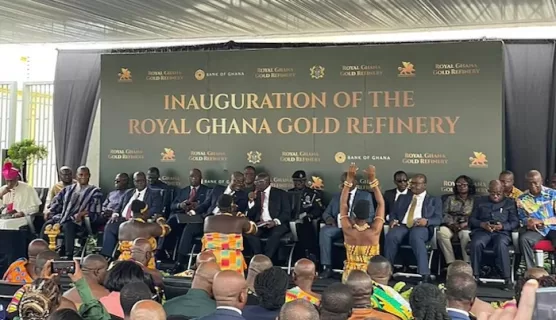
Additionally, Finance Minister Mohammed Amin Adam said while gold accounts for approximately 96 per cent of Ghana’s minerals exports, the raw state of the commodity i.e. gold limits the revenue potential of Ghana.
“The new refinery opens many doors for economic transformation by creating jobs for the citizens that will have a multiplying effect on the local economy,” he mentioned.
Ghana the Leading Producer of Gold in Africa
Ghana stands as Africa’s leading gold producer, with the precious metal accounting for over half of the country’s total exports. Gold is the most commercially exploited mineral in Ghana, accounting for about 95% of the country’s mineral revenue. Other commercially exploited minerals in Ghana are manganese, bauxite, and diamonds. The country is also endowed with deposits of iron ore, limestone, columbite-tantalite, feldspar, quartz, and salt, and there are also minor deposits of ilmenite, magnetite, and rutile. In 2018, Ghana discovered commercial quantities of lithium and is working with international partners to mine and develop lithium mining and processing.
Ghanaian mining production traditionally was state owned, but starting in the 1980s, Ghana moved toward privatization and state divestiture, including by attracting foreign investment. Some of the major mining companies in Ghana are Newmont Goldcorp (American), Gold Fields, AngloGold Ashanti, among others.
In the first half of the year 2024, gold exports soared, driven by a surge in global gold prices and increased production.
The spike in prices, which saw gold reach a record $2,338 an ounce in the second quarter, contributed to gold exports totalling $5bn, or 54 per cent of the country’s total exports.
Lastly, Illegal mining activities has been a major problem in the West African country as it tries to address environmental degradation and pollution of water bodies by these activities.
Company Roles in the Project’s Development
Primary Owners & Joint Venture Partners: Bank of Ghana (BoG), Rosy Royal Minerals Limited (India), Precious Minerals Marketing Company (PMMC)
Management & Technical Partners: Royale Mining UK, Rare Tech (New Delhi), Italian Technical Partners.
Legal & Advisory Firms: Ghartey & Ghartey (Accra), Bentsi-Enchill, Letsa & Ankomah.
Supporting Government Entities: Minerals Commission of Ghana, Ministry of Lands and Natural Resources.
Also read: Ghana Inaugurates Africa’s Largest Rooftop Solar Plant in Tema: First of its Kind
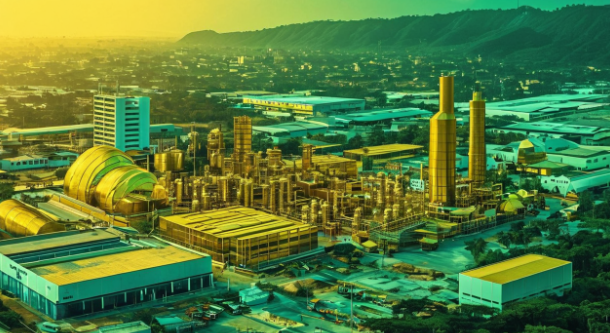
Leave a Reply